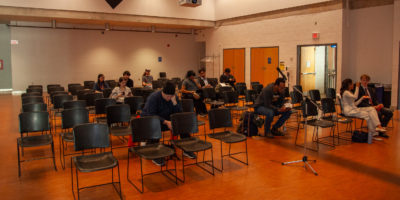By Emma Prestwich
Chris Kim chose Ryerson’s radio and television arts program because he wanted to follow the dreams of his father, who worked in broadcasting back in Korea.
Kim, 20, immigrated to Canada as a child and is part of a trend among first and second-generation Canadians who are more likely to attend university than non-immigrant children.
According to a 2008 study conducted by two professors from the University of Lethbridge, new Canadians or those whose parents immigrated have a higher rate of university attendance than their non-immigrant counterparts.
The study reported that almost 90 per cent of second-generation Chinese immigrants attend university by age 23, as well as 82 per cent of first-generation youth from Africa, compared to 37 per cent of non-immigrants.
Richard Mueller, the study’s co-author and associate professor of economics at the university located in Alberta, said that Canada’s immigration policy highly favours educated immigrants, which partly explains high university participation rates .
“You don’t come to Canada to learn about Canadian history, you want to learn about business practises that will help you be successful,” Mueller said.
Mubarak Mohamed, a third-year politics student who immigrated to Canada from Somalia six years ago, said taking up residency in a new country comes with certain expectations.
“You’re expected to contribute to family members back home,” he said. “You’re expected to go into the labour market.”
Vappu Tyyskä, director of the master’s program in immigration and settlement studies at Ryerson, said that many first and second-generation immigrants emphasize professionally-related programs in order to find better jobs. This makes schools like Ryerson, which focus on hands-on programs, more attractive.
“Voluntary migrants tend to come here to look for educational opportunities,” she said. “They put a lot of emphasis on their children’s success.”
Alan Bao, a second-year new media student, agrees that further post-secondary education is the main reason people have left his home country of China.
“For a lot of people, the reason they leave China is to attend university,” he said.
As for Kim, he said that many Korean students attending university were forced by their parents, as he was.
“They set out to Canada or the U.S. to achieve something.”









Leave a Reply